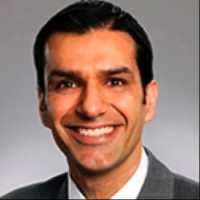 MedicalResearch.com Interview with:
Dr. Rashid Bashshur PhD
MedicalResearch.com Interview with:
Dr. Rashid Bashshur PhD
Director of Telemedicine
University of Michigan Health System
Emeritus Professor of Health Management and Policy
University of Michigan, School of Public Health
Medical Research: What is the background for this study? What are the main findings?
Dr. Bashshur: The impetus for this research derives from the confluence of several factors, including the increasing incidence and prevalence of chronic diseases, their associated morbidity and mortality and their high cost. The search for solutions has taken center stage in health policy. Patients must be engaged in in managing their health and health care, and they must assume greater responsibility for adopting and maintaining a healthy life style to reduce their dependence on the health system and to help themselves in maintaining an optimal level of health. The telemedicine intervention promises to address all these issues and concerns, while also providing ongoing monitoring and guidance for patients who suffer from serious chronic illness.
The preponderance of the evidence from robust scientific studies points to the beneficial effects of the telemedicine intervention (through telemonitoring and patient engagement) in terms of reduction in use of service (including hospital admissions/readmissions, length of hospital stay, and emergency department visits) as well as improved health outcomes. The single exception was reported in a study among
frail elderly patients with co-morbidities who did not benefit from the telemedicine intervention.
There is an ever-growing and complex body of empirical evidence that attests to the potential of telemedicine for addressing the triad problems of limited access to care, uneven distribution of quality across communities, and cost inflation. Research demonstrates the effectiveness of the telemedicine intervention in addressing all three problems, especially when patients are engaged in managing their personal health and healthcare. The enabling technology can be used to promote healthy life styles, informed decision making, and prudent use of health resources.
Unintended consequences of delaying mortality for older adults may also increase the use of resources, especially in the long run, and society must decide on the ultimate values it chooses to promote.
(more…)




